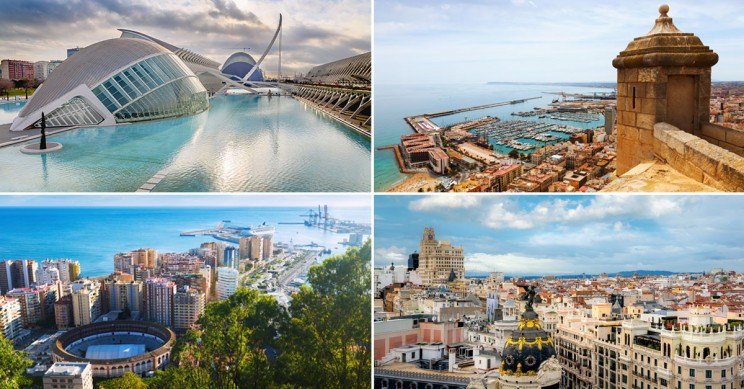
Large metropolises such as London, Paris or Hong Kong are no longer as attractive for expat workers to live in. Their preferences have changed, more so now with the coronavirus pandemic, and expats are increasingly opting for smaller cities where they can find a better work-life balance, good health care and easier access to housing. Featured in a recent Bloomberg publication, Valencia, Alicante and Lisbon top the list, with Malaga and Madrid also in the top 10 of expats’ favourite and least favourite cities.
Everyone's life has changed in some way with the coronavirus pandemic. And it is even more noticeable in the activity of expatriate workers, those foreigners who live and work abroad. The large metropolises that have always been among the preferred places for foreigners to live because of their history, culture and commerce have this time been relegated to further down the list of the best cities for expats, with smaller cities taking precedence.
According to a study by InterNations, an online platform for expats based in Munich and with around 4 million members, the shift to smaller cities was already beginning to be seen before the arrival of the worst of this pandemic. In the survey which was carried out earlier in 2020, more than 15,000 people representing 173 nationalities participated, with Valencia, Alicante and Lisbon in the top three, followed by Panama City and Singapore. Two more Spanish cities join the top 10 best cities to live and work in for foreigners, Malaga in 6th place and Madrid in 9th.
Health, safety, climate, work/life balance and access to housing are now the top priorities for these foreign workers who in this study have redirected their preferences to coastal cities. The Spanish cities that make the top 10, Valencia, Alicante, Malaga and Madrid are also increasingly propular destinations for foreigners due to the rise in teleworking, as workers have more flexibility to choose destinations to suit their personal needs.
The big European capitals such as London, Paris and Berlin fall to the bottom of the list due to dissatisfaction with their jobs or work-life balance or serious difficulties in gaining access to quality housing. This is now compounded by the fact that many foreigners are exhausted after the confinement measures and restrictions on leisure, culture and catering that detract from the best of urban life.
"Foreign workers in big cities such as New York, Tokyo, Paris, Hong Kong or London struggle to find affordable housing and are generally dissatisfied with their financial situation," says Malte Zeeck, founder and co-CEO of InterNations. "Expatriates in these cities are often dissatisfied with their work/life balance as well," he says.